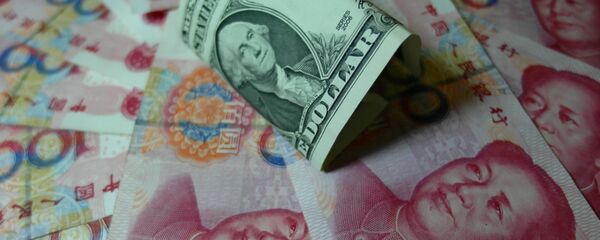The US is locked in a "covert economic war" with China. That is what White House Chief Strategist Steve Bannon has recently said in his phone conversation with the American Prospect magazine. The official said the next few decades would decide who would be a "hegemon," fearing that it could be Beijing, not Washington.
Sputnik Radio spoke with Joseph Cheng, Professor of Political Science at the City University of Hong Kong, who said that though Steve Bannon's statement is "very much an exaggeration," certainly the US feels that China is going to be, in the long term, or even may be in the medium term, a threat to its dominance in the international community.
"There is not much that the US can do to prevent China from becoming the world's economic leader because China is a developing economy. There seems to be a very definite trend that the size of its economy and the level of sophistication of the economy have been improving," he told Sputnik.
However, the majority of economic experts believe that, for at the least the next coming one or two decades, the US will be able to maintain its lead in the international community, he said.
"Although this lead is fast narrowing. Its relative weight in the international economy will probably be in a gradual but steady decline, meaning that other countries will become economically stronger and their share of the international GDP will probably be on the rise," he warned, citing BRICS as a good example of the above statement.
The political scientist also noted that an economic war is going to be very costly to both the US and China, and to the entire world. The US and China are very much intertwined, interconnected in various international production chains.
It is obvious that the US business community has been the staunchest advocate for good relations between the US and China. The American business community has been the major beneficiary of the expanding trade and investment activities between the two countries, Joseph Cheng concluded.



